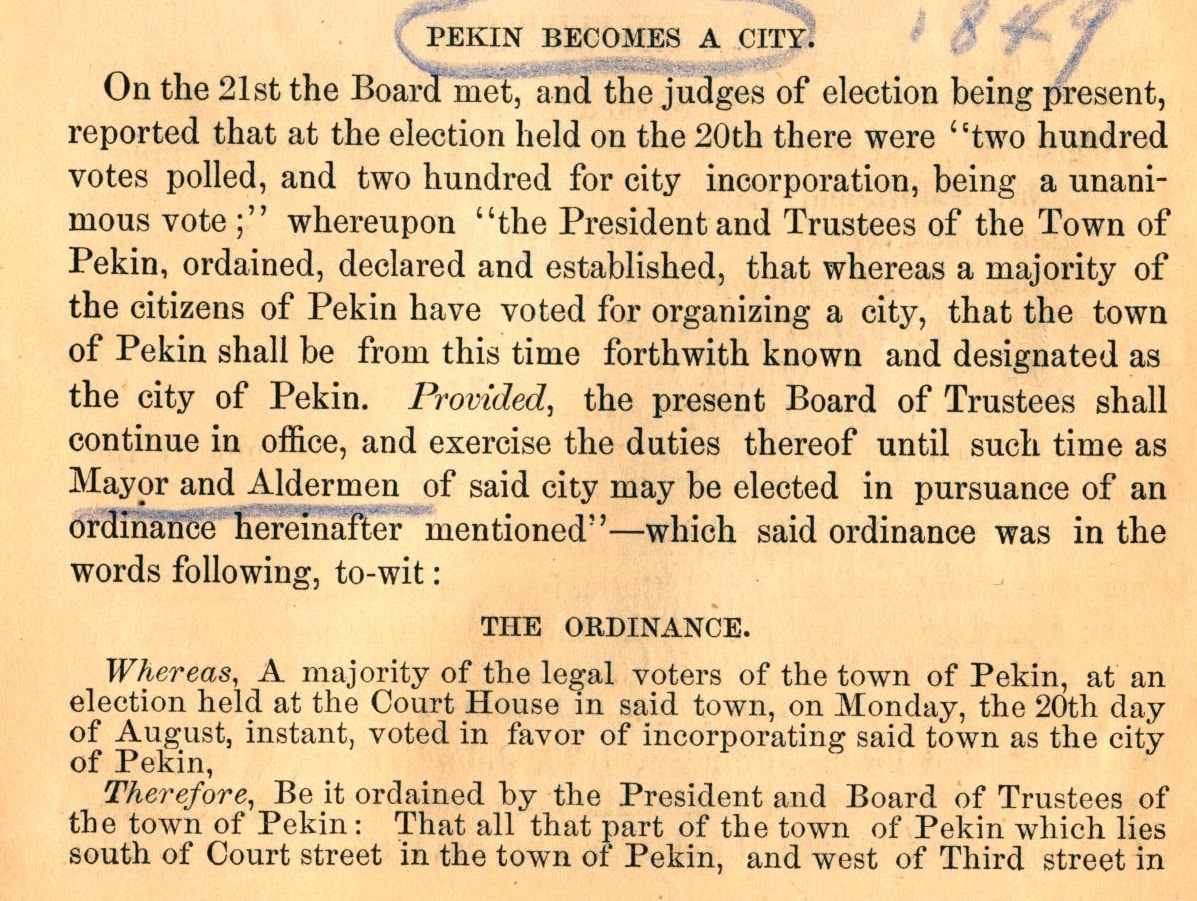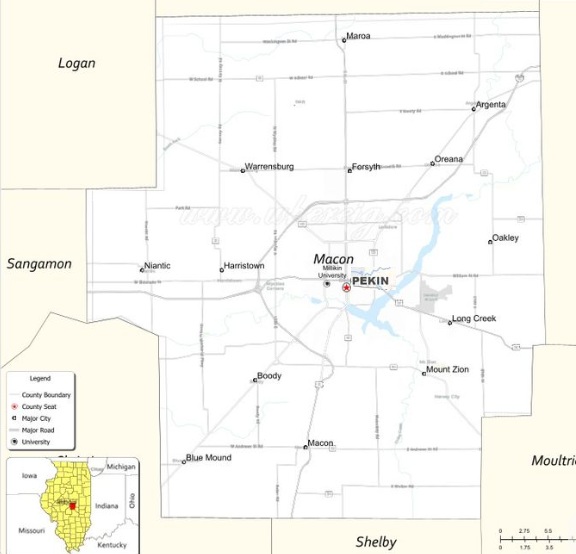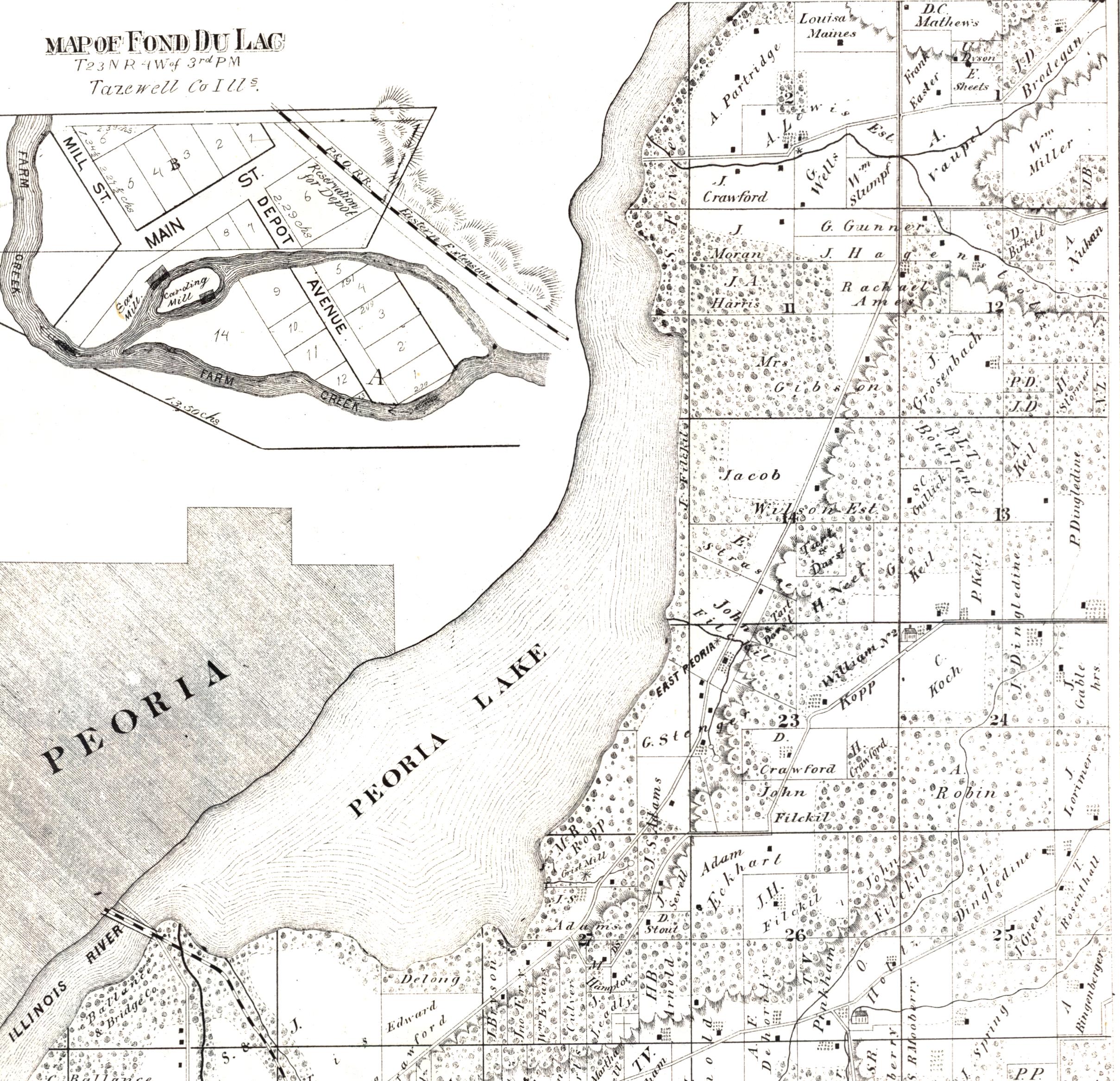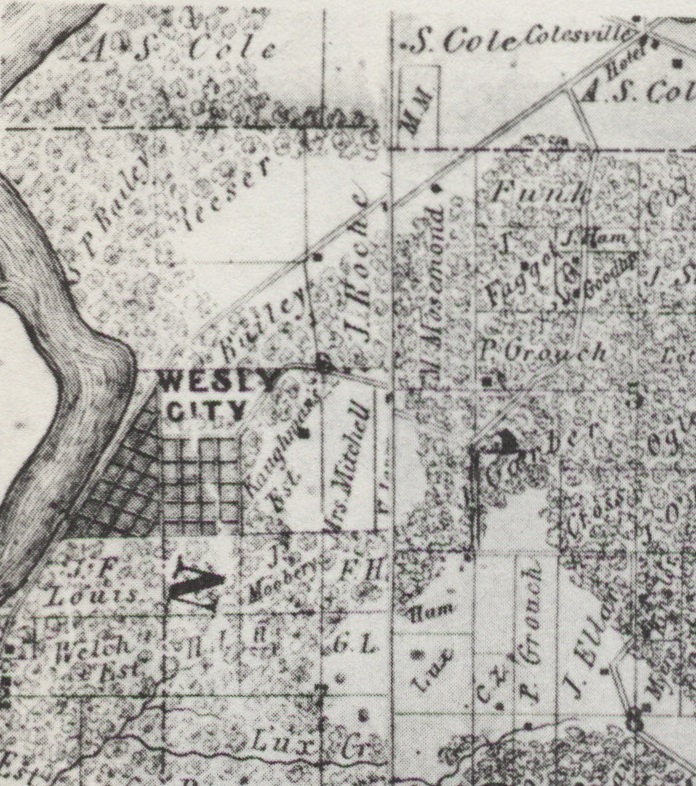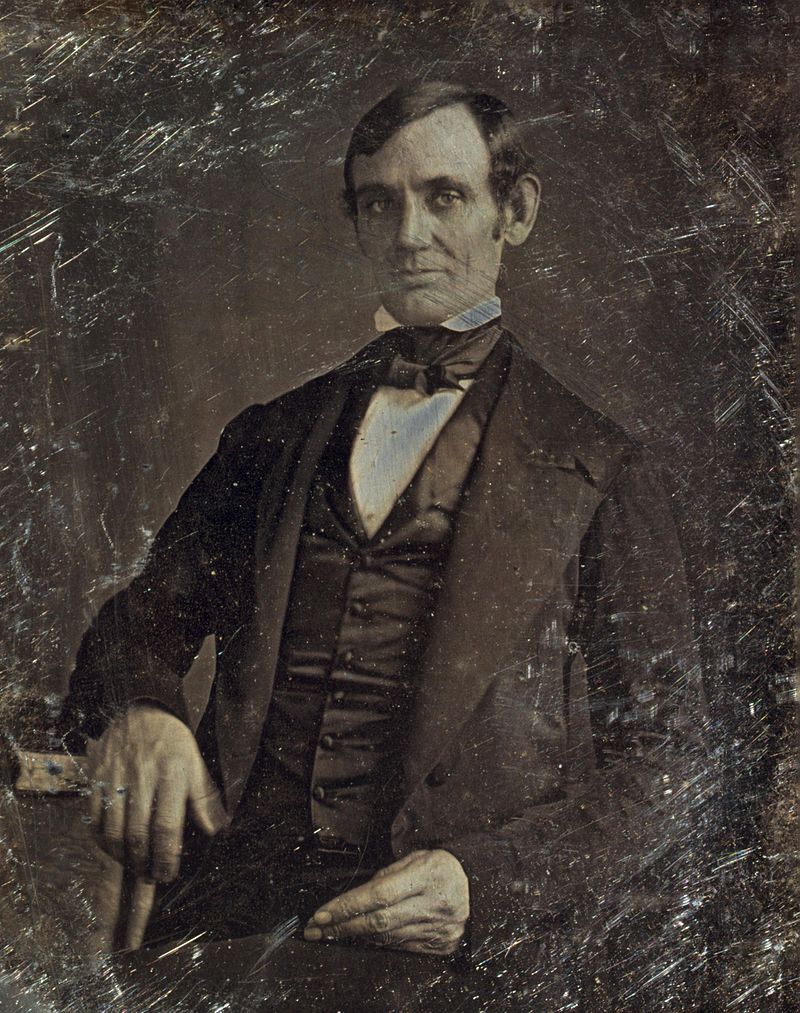This is a revised version of one of our “From the Local History Room” columns that first appeared on 28 Jan. 2012 before the launch of this weblog, republished here as a part of our Illinois Bicentennial Series on early Illinois history.
Pekin has been Tazewell County’s leading community and the continuous seat of county government about as long as Pekin has been a city. But our city had not a few birth pangs in its earliest days, and during Pekin’s first two decades or so the community’s future was often in doubt.
As stated in the Nov. 5, 2011, “From the History Room” column, the 1824 arrival of Jonathan Tharp three years before the formation of Tazewell County was the seed from which Pekin would grow. However, things got off to a slow start, and by 1830 only eight white families lived in the settlement that was given the name “Pekin” that year.
Pekin’s fortunes were then on the rise, however, and in the spring of 1831 the county’s officials obtained permission from the state to temporarily move the county’s government operations from Mackinaw to Pekin – an interim decision until a state-appointed commission had determined where the permanent county seat should be.
Four years later, on July 2, 1835, Pekin’s voters chose to formally incorporate as a town and the community held its first town election on July 9, 1835, to install “a board of five trustees of the Town of Pekin” to serve one-year terms. The vote results were: D. Mark, 24; D. Bailey, 24; Samuel Wilson, 17; Joshua C. Morgan, 22; S. Pillsbury, 24; and S. Field, 12. In the words of Pekin’s early historian W.H. Bates, “On the 11th of the same month, the Board of Trustees was organized, J.C. Morgan being elected President, and Benjamin Kellogg, Jr., Clerk.” (1870 Pekin City Directory, p.13)
Just one year later, however, Pekin suffered one of its many early setbacks, when the above mentioned state-appointed commission decided that county seat was to be moved from Pekin to Tremont. Pekin’s Board President J.C. Morgan moved to Tremont at that time and resigned from the Pekin town board on June 27, 1836.
Undaunted by the loss of county seat status, Pekin carried on with its annual town elections and its population steadily increased. Calamity struck in late 1843, however, when a deadly scarlet fever epidemic swept over the community, which then numbered about 800 residents.

It would be more than a decade before Pekin found itself on surer footing. As the 1974 Pekin Sesquicentennial says, “After years of misfortunes, epidemics, wars, droughts, and general weariness, Pekin seemed due for a change of luck. It came, and 1849 was the turning point. The population had risen to 1,500, and the town’s residents voted unanimously to organize under a city charter (dated August 20, 1849). On September 24, Bernard Bailey was elected mayor, heading a council of four aldermen: John Atkinson, David Kenyon, William Maus, and Jacob Riblet.”
Maus, incidentally, was one of the town’s doctors, and he had attended to the sick during the scarlet fever epidemic of 1843-1844. He had previously treated Pekin’s cholera victims during the July 1834 epidemic.
In the 1870 Pekin City Directory, W. H. Bates details the process of how Pekin became a city. To begin with, Bates says the county seat was moved from Tremont back to Pekin in 1848. But Illinois state records show that it was 1849, the same year Pekin incorporated as a city, and “1849” is handwritten — perhaps by Bates himself — on the page of the library’s copy of the 1870 City Directory.
Bates then relates that on Aug. 7, 1849, the town board approved a resolution to take a census of Pekin “preparatory to city organization under the general act of incorporation allowing towns of fifteen hundred inhabitants the privilege of adopting the Springfield or Quincy charters if a majority of the inhabitants, upon due notice, vote in favor of it.” (Springfield and Quincy had themselves both received their city charters from the Illinois General Assembly on Feb. 3, 1840.)
Only two days later, on Aug. 9, 1849, the census results were reported to the board, and, having found that Pekin contained at least 1,500 people, it was “ordered that two weeks’ notice, to be published in the ‘Mirror,’ for an election, to be held on the 20th of August, 1849, to vote for or against the City of Pekin.”
With the unanimous vote on Aug. 20, the “City of Pekin” was born, with a mayor/alderman form of government. Bates says Pekin was only the 10th incorporated city in the State of Illinois. Records show that it had been only six months since the state’s ninth city, Rock Island, was incorporated.


